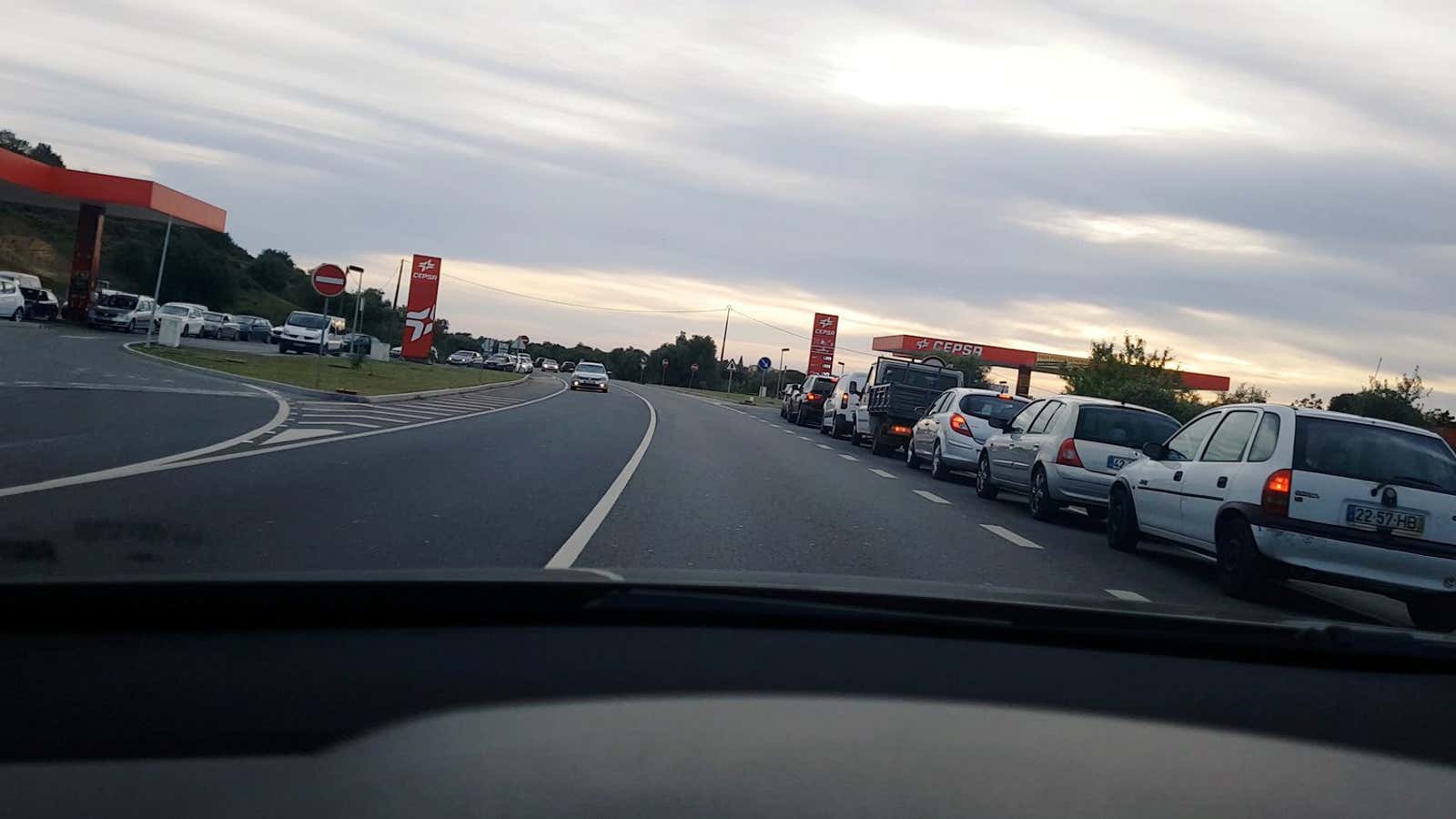Electric vehicle makers and owners have benefited for years from generous government subsidies aimed at fighting pollution and global warming. But the biggest boost, arguably, would come from a fuel crisis, such as the one that had the US enduring long lines for overpriced gasoline in the 1970s following an oil embargo by Middle East producers—or, on a much smaller scale, the one Portugal experienced this week.
At midnight on Monday (April 15), a union of hazardous-goods drivers began a strike in Portugal demanding better pay and conditions for its workers. The following evening, the government declared an energy crisis, noting the strike was affecting airports, gas stations, ports, and public transportation. The crisis proved short-lived, with the workers calling off the strike on Thursday following talks.
But for a few days at least, Tesla owners in the country felt the relief of not needing to join the long lines at petrol stations. Some even took to social media to express their delight.
Some observers of the crisis suggested Tesla CEO Elon Musk use it as a selling point for his vehicles.
Some suggested other nations would better grasp the worth of electric vehicles were they to suffer a similar fuel crisis.
Fortunately, the fuel crisis appears to be over for traditional-vehicle owners and others in Portugal. But for those who watched Teslas rolling by as they waited in line for gas, it’s likely their interest in electric cars went up a notch.
